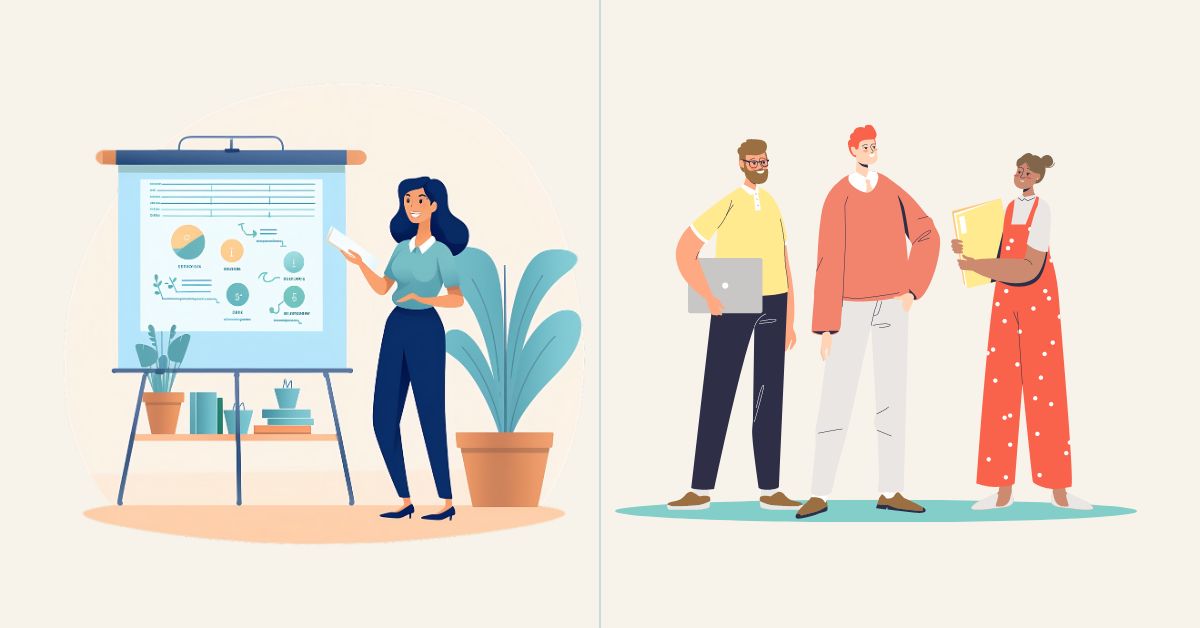Navigating the debate of education vs experience is crucial for career success. Both paths offer unique benefits and challenges, influencing your professional journey in different ways. Understanding the impact of formal education and hands-on experience can help you make informed decisions about your career development and growth.
In this article, we will learn about education vs experience, different employer perspectives, who you can balance education and experience side by side. So, if you are someone who wants to know about how education and experience can go hand-in-hand, continue reading this article.
Table of Contents
Education: Its Value in the Job Market
Definition and Types
- Primary and Secondary Education: This is the stage where students get general knowledge and also gain important skills. This is the foundational stage where students learn about different topics like math, science, language, etc.
- Higher Education: This is the stage where students learn about various fields and get socialized education which prepares them for their professional career. This stage includes bachelor’s and master’s programs.
- Professional and Industrial Education: These programs are mostly certifications and diplomas programs. They are programs that help students get a specific skill set for specific fields like medicine or information and technology.
- Professional Development: These programs help professionals brush their skills, advance in their career, and get new skills according to the changes in their industry. They can be in the form of seminars or online classes.
Skills and Knowledge
Education helps you get a broad range of skills and knowledge which are useful in today’s job market. These include:
- Textbook Knowledge: Understanding basic ideas and principles across various principles offers a strong academic foundation and helps in solving problems and critical thinking.
- Technical Skills: Professional skills in specialized sectors, like programming of computers, principles of engineering, medical techniques, or legal methods, are essential for job-related roles.
- Soft Skills: Skills like verbal, teamwork, thinking under pressure, and managing time, which are important for success and adaptability.
- Research and Analytical Skills: Proficiency in conducting research, reading data, and providing conclusions is useful professions which need choices which are evidence-based and tactical planning.
Perceived Benefits
Education has a vast impact on an individual’s profession and personal life, besides imparting information and abilities. Better education opens doors to several career prospects with better compensation opportunities and increased job stability and less vulnerability to economic downturns. Things like curiosity, tactical thinking, and lifelong learning are promoted through education which helps people to evolve as individuals
Experience: Its Role in Employment
Types of Experience
Skills and Proficiencies
Perceived Benefits
Employer Perspectives
An employer’s perspective on work experience vs education varies depending upon the industry, role/designation and hierarchical requirements. While some employers may emphasize having a strong educational background supported with certificates and good credentials, others may look up to their work experience as their qualifying match. This creates employee personas based on academic excellence vs practical skills.
Current Trends
In this fast-moving market and in an environment where a holistic blend of education and practical skills are a well-sought combination after the pandemic, employers are placing greater importance on candidates who bring a well-balanced fit of education and experience with confidence and communication skills. Such employees are perceived to be pervasive across all roles and industries, with this unique mix of expertise.
Employer Preferences
Employers usually seek candidates who offer a mix of skills. Candidates are perceived as a more job-centric requirement if they possess a strong end on either side of academic or hands-on experience. Yet usually, employers prefer a well-rounded skill set amongst candidates who demonstrate a seamless blend of both. Furthermore, it depends on the profile and designation of the role. A higher or A-levels job might need a prerequisite number of years’ experience as their qualifying nature.
























